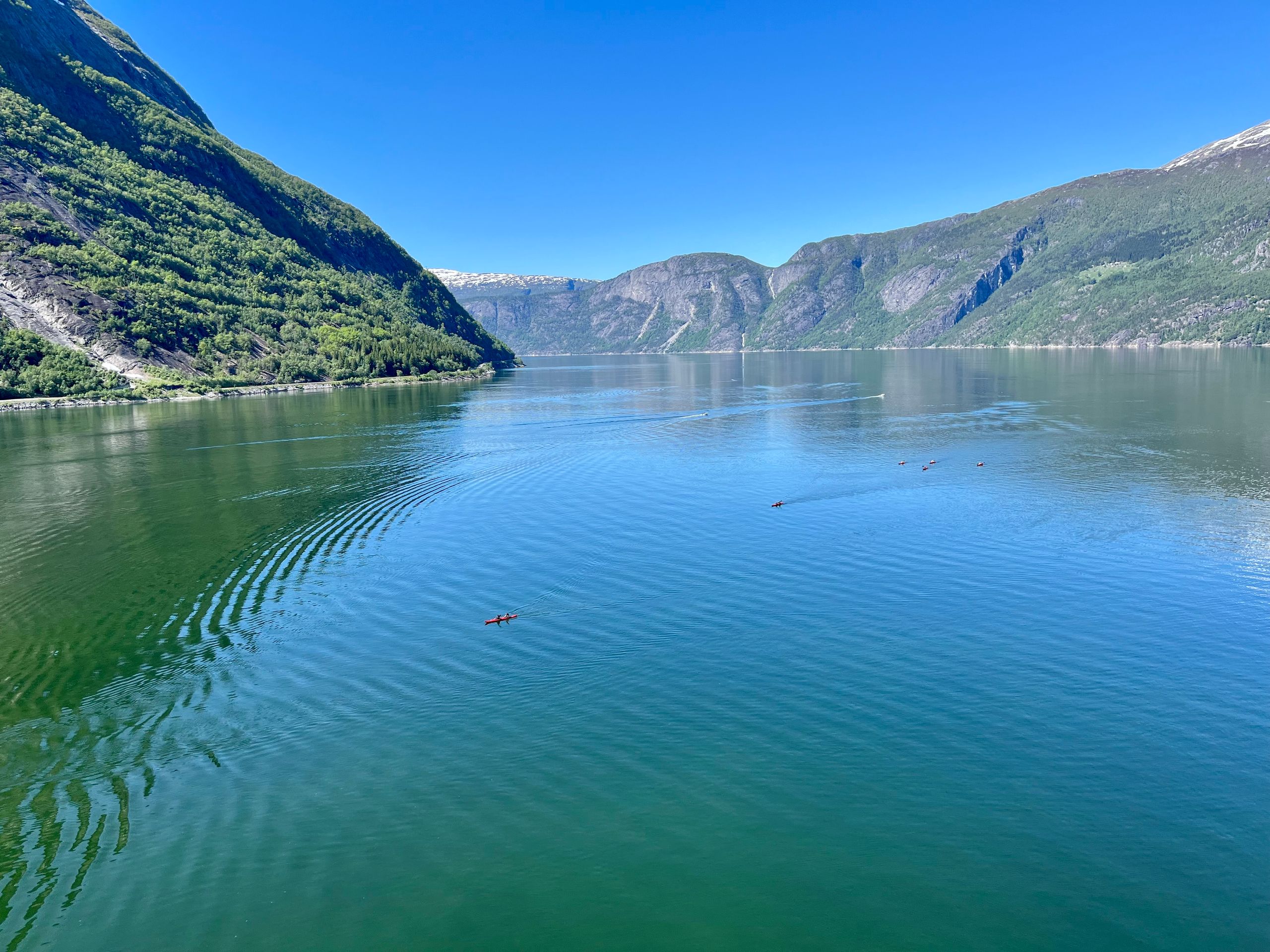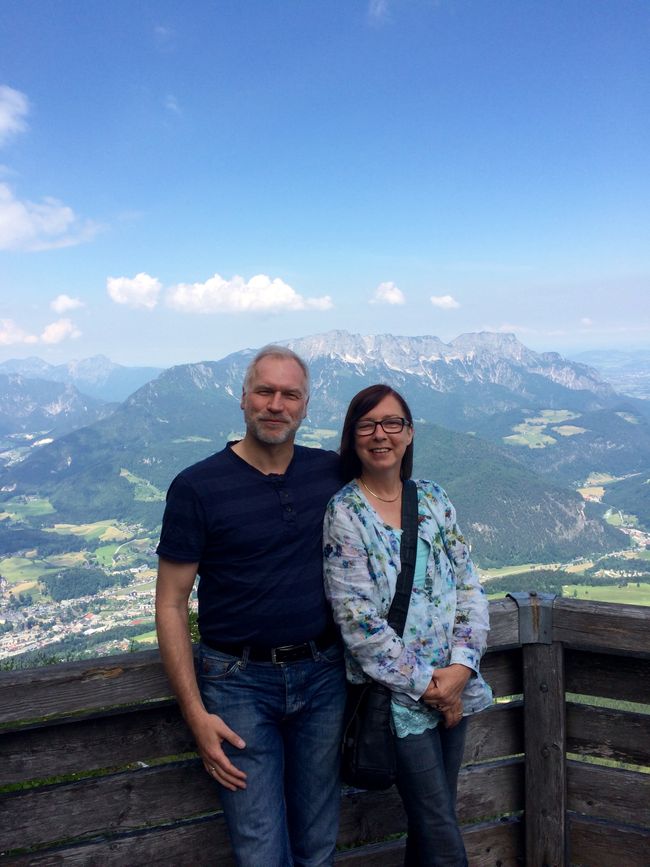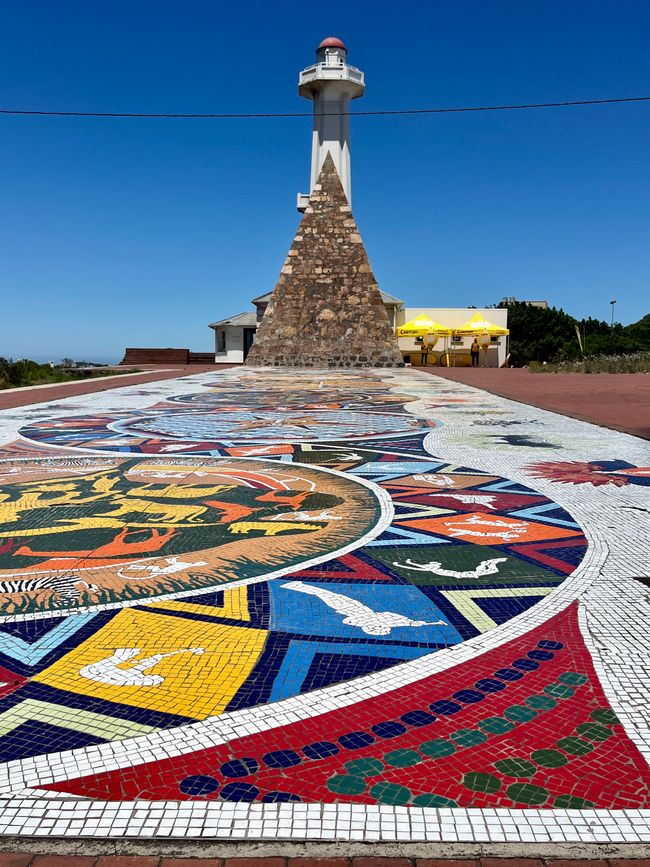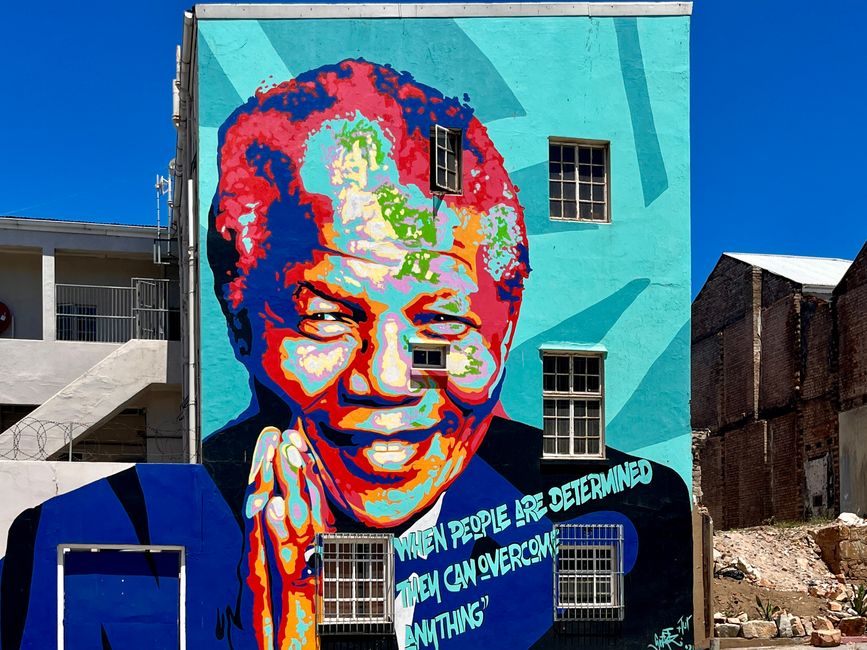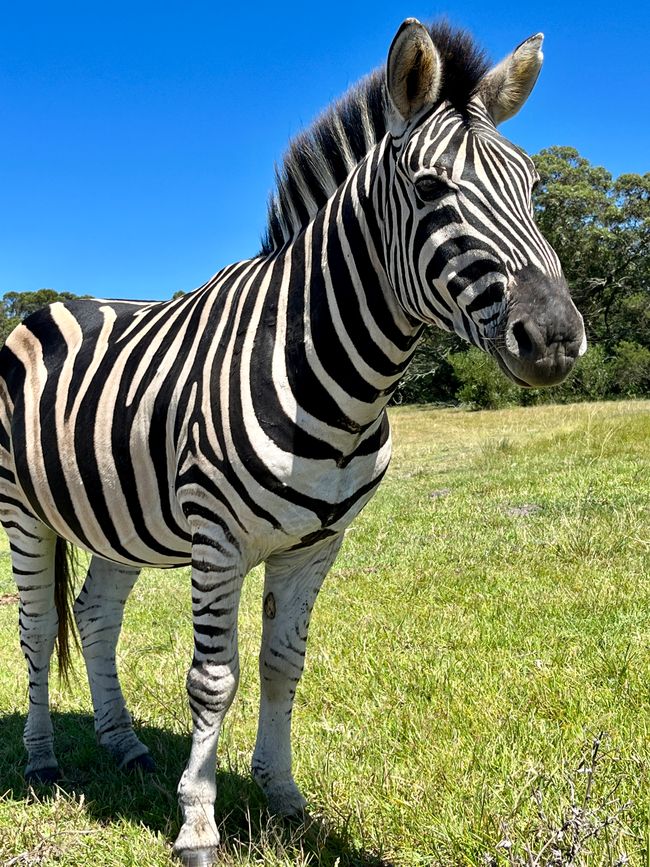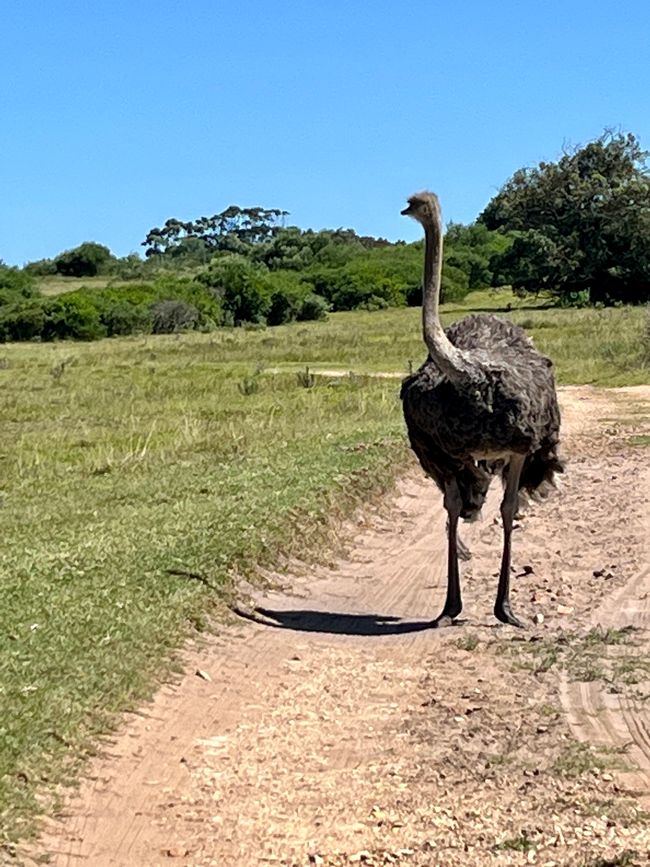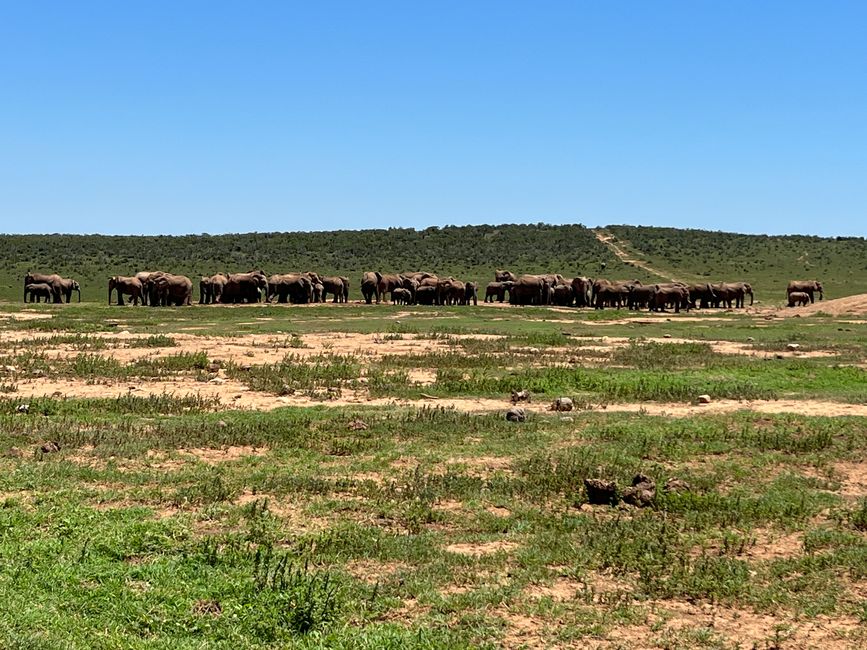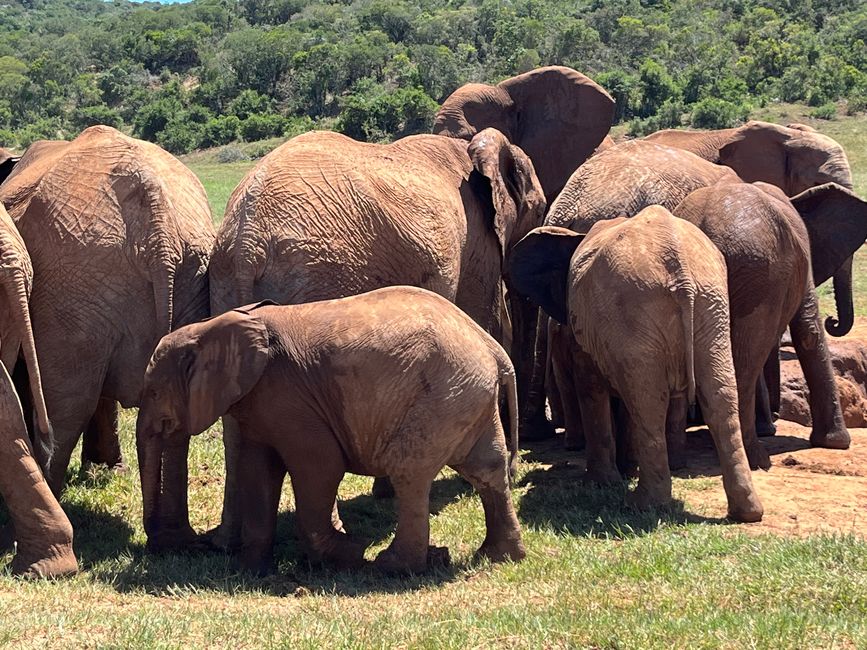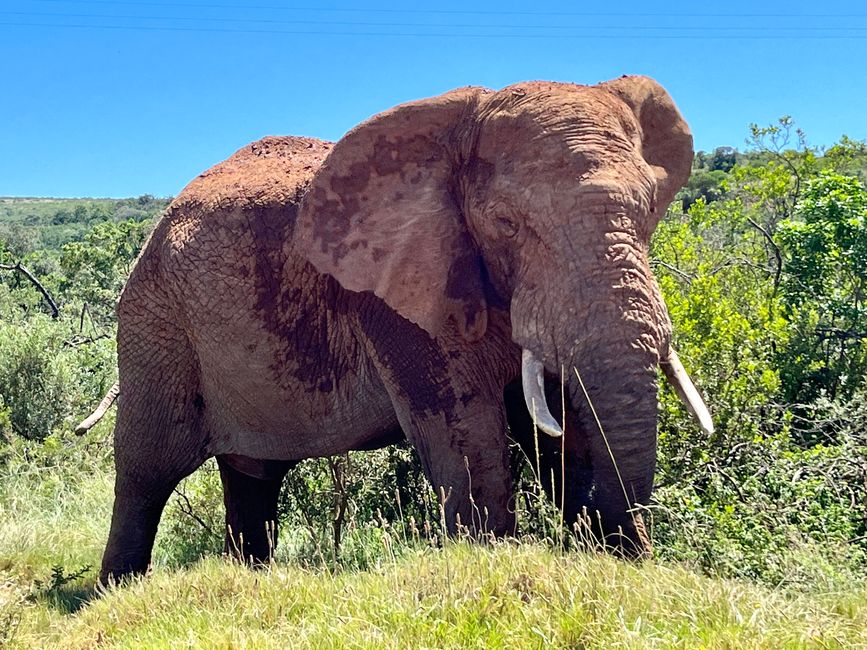Tag 93/94: Port Elizabeth - In Search of the Big 5
Გამოქვეყნდა: 28.01.2023
Გამოიწერეთ Newsletter
Port Elizabeth (short P.E.) is located in the Eastern Cape province, on the Algoa Bay, approximately 770 kilometers east of Cape Town. Together with the cities of Uitenhage and Despatch, as well as other towns, it forms the Nelson Mandela Bay Municipality with a population of around 1.2 million. Port Elizabeth is known for its white, expansive beaches, which are located in close proximity to the city. It is considered the water sports capital of Africa. The most important economic factor by far is the automotive industry. Ford and General Motors have their production facilities in the city, and VW operates its largest African plant with over 7,000 employees in Uitenhage. The port is the third largest in South Africa. Port Elizabeth is called the "Windy City" because of its excellent conditions for water sports. Surfing, sailing, swimming, and many other leisure activities attract domestic and foreign tourists to the city on the Algoa Bay. Its proximity to some of South Africa's most famous attractions, such as the Addo Elephant National Park, makes it particularly attractive. But even a stroll through the historic buildings is interesting - as well as a shopping spree in the art and antique shops. A special experience is a visit to a Xhosa Medicine Shop, where traditional medicine of the local Xhosa people is sold.
The pilot overslept, so we are allowed to enter the port without a pilot for once, but at a different dock. So our ship is now stern to stern with the AUDAaura, which will sail tonight.
At around 9 o'clock we walk to the port exit. Actually, we want to take a ride through the city. Mike suggests a combination with the Kragga Kamma Game Park and wants 100€ per person for it. We say it's too expensive, so he makes a special offer. The woman is free, which means it's now 67€ for each of us. We make the deal and start driving. Mike is a retiree and does this in his free time on a freelance basis. His enthusiasm for the job is immediately noticeable.
In South Africa, a "game drive" refers to a drive through a safari park. We take one in Mike's car. He knows the park very well, knows where to find the different animals, and which bumps to avoid. He explains the creation of the park, the peculiarities of individual animals, and much more. Before the AIDA bus arrives, we have already been to the park café, which saves us waiting time. We can see various antelopes, giraffes, zebras, ostriches, warthogs, buffalos, rhinos, and even cheetahs, some of them standing right in front of or next to the car. Only the lions cannot be found.
On the way back, we see the main points of interest in Port Elizabeth. These include the fort, colonial buildings, and Donkin Reserve (a square with 67 artworks commemorating Nelson Mandela). The drive through the old main street shows rundown houses with partly bricked-up windows and doors, many homeless people, and lots of garbage. When I see this, it becomes clear to me why we are constantly warned not to walk through the city. No one does that here, it's just too dangerous, as several cases of robbery involving AIDA guests confirm. But of course, you can see the city if you follow certain rules. We never felt unsafe, but we were also never alone and on foot. After 4 1/2 hours, Mike takes us right back to the ship. We thank him for the wonderful day.
In the evening, the AIDAaura sets sail, slowly reversing past the AIDAmar in less than 30 meters, with ship horns, waving, swinging lights, and a laser show included.
On the second day, we go to the Addo Elephant National Park. We are a group of 12 people who booked this tour a long time ago through Noelle (115€ per person). At 8 o'clock sharp, two jeeps pick us up from the port. We split into a group of 7 and a group of 5. The driver of our group of 5 (Martina & Uwe Sommer, Irm, Marion & me) is named Wanele. A nice guy who may have watched Formula 1 races a little too frequently. In any case, he drives at a brisk pace on the highway. The park is huge. The path leads through dense bushland, and Wanele advises us to have our cameras ready. Anything can happen, as he puts it. Suddenly, a kudu stands between the trees, and at one point, a solitary male elephant breaks through the bushes right next to the vehicle. I never imagined being able to capture such close-up shots. Fantastic! At a water hole, we come across a herd of more than 100 elephants taking turns bathing. When the little ones go into the water, the mothers are always nearby. The antelopes keep their distance, and warthogs are chased away by the water. It is clear who is in charge here. Despite an intensive search, we cannot find the rhinos or the lions. But we meet at the highest point of the park (300 meters) and take group photos with the drivers and jeeps. Afterwards, we go to the main camp for a very good lunch. After we have strengthened ourselves, we drive through the entire park again, being shaken up quite a bit. But in the midday heat, there is no chance of seeing the lions. Because Wanele probably has the order not to bring us back to the ship too early, we take a detour past the soccer stadium and through the old main street to the port. The 8 1/2 hour tour was exhausting but worth it. Wanele also provided entertainment and a lot of background information. We consider this safari to be extremely successful.
Unfortunately, we only saw three of the Big Five (elephants, lions, leopards, rhinos, and buffalos). The lions and leopards didn't show up, but we are not disappointed.
At 9 pm, we set sail for Cape Town, which we are supposed to reach on the morning of January 31st at 6 am.
Გამოიწერეთ Newsletter
Უპასუხე
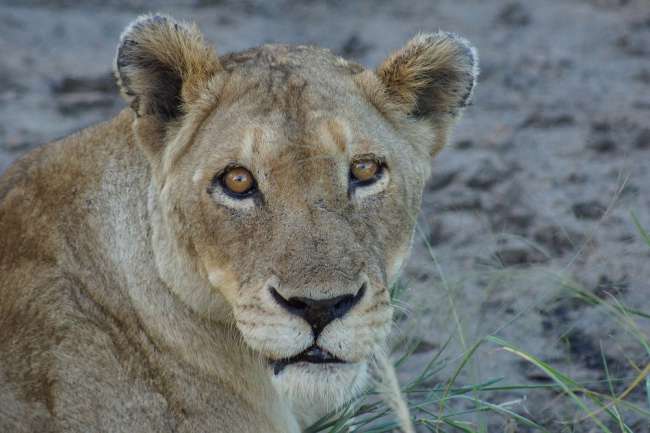
Მოგზაურობის ანგარიშები Სამხრეთ აფრიკა
